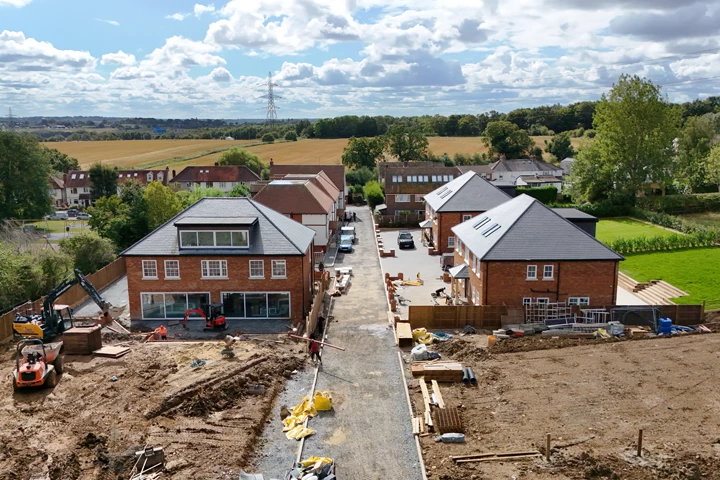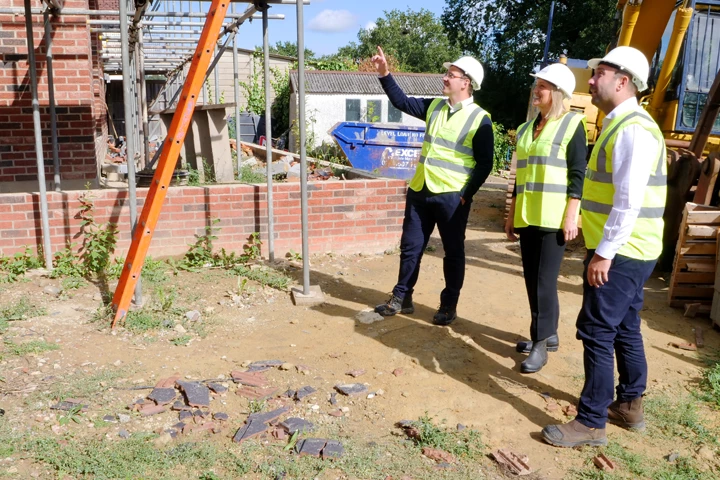Starmer and Rayner Announce Ambitious Planning Reforms

The housing crisis in the UK has long been a critical issue, but Prime Minister Sir Keir Starmer and Deputy Prime Minister Angela Rayner are doubling down on their efforts to address it with an ambitious set of new planning reforms. These measures aim to deliver 1.5 million homes by the end of this parliamentary term, marking a significant step toward resolving the challenges of unaffordable housing and homelessness.
Key Updates to the National Planning Policy Framework (NPPF)
Under the revised planning rules, councils across the country are now under greater pressure to contribute to meeting the nation's housing needs. Here are the core elements of the reforms:
- Mandatory Housing Targets: Local housing targets are being increased by a total of 370,000, with areas suffering from the highest levels of unaffordability and greatest growth potential facing the largest increases. Councils will also be required to adopt or update their local plans to align with these targets. Failure to do so will compel councils to increase the amount of land designated for housing.
- Greenbelt Adjustments with Strict Conditions: While the government maintains its commitment to prioritizing brownfield development, councils are now required to review greenbelt boundaries to meet housing needs. Lower-quality 'grey belt' land will be prioritized, but any development in greenbelt areas must adhere to strict 'golden rules.' Developers must ensure infrastructure,
such as nurseries, GP surgeries, and public transport, is in place and include high levels of affordable housing in their plans.

genuinely affordable homes, particularly those available for social rent. Local leaders are also empowered to accelerate
projects that address affordability and homelessness directly.
supply of homes to their development pipeline—six years instead of five. Failure to meet this requirement will invoke a stronger
presumption in favor of sustainable development.
'brownfield passports' to streamline development on such sites. Further details on this initiative will be unveiled next year.
Financial and Resource Support for Councils
Recognizing the strain on local governments, the government has committed an additional £100 million to help councils update their local plans and review greenbelt land. This funding can be used to hire additional staff, commission technical studies, and conduct site assessments. Planning departments will also benefit from increased planning fees and the addition of 300 new planning officers
to expedite housing approvals.

Leadership Voices: Starmer and Rayner
Prime Minister Starmer emphasized the urgency of tackling the housing crisis, drawing on his personal experiences: "For far too long, working people graft hard but are denied the security of owning their own home. I know how important it is—our pebble dash semi meant everything to our family growing up." He highlighted the stark reality for young people whose dream of homeownership seems increasingly out of reach and reiterated his government's commitment to addressing record levels of homelessness.
Angela Rayner elaborated on the technical aspects of the reforms: "The government is introducing a new requirement that where plans based on old targets are still in place from July 2026, councils will need to provide for an extra year's supply of homes in their pipeline. Where they do not, the strengthened presumption in favor of sustainable development would apply." She also reaffirmed the importance of brownfield development as the first choice for new housing projects.
Striking a Balance Between Growth and Sustainability
While these reforms aim to significantly ramp up housebuilding, the government's approach also seeks to balance growth with sustainability. From prioritizing brownfield land to ensuring infrastructure is in place before greenbelt development, the measures reflect a nuanced understanding of local needs and environmental concerns. The introduction of stricter guidelines for greenbelt development and financial incentives for councils underscores the government's intention to pursue growth responsibly.
What's Next?
With these reforms, Starmer and Rayner's administration has made it clear that addressing the housing crisis is a top priority. By increasing local housing targets, incentivizing brownfield development, and providing councils with the resources they need, the government hopes to pave the way for a more secure and affordable future for millions of Britons.
The success of these reforms, however, will depend on effective implementation and the ability of councils and developers to meet these ambitious goals. As we await further details, such as the specifics of the 'brownfield passports,' all eyes will be on local governments to see how they rise to the challenge.

